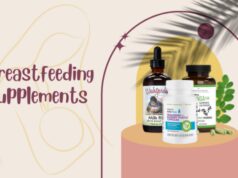If you are a breastfeeding mother, there is no doubt that you know that breastfeeding is the most natural and best feeding for your newborn. You can ask any expert in this field, and everyone will tell you the same.
Table could not be displayed.There are many benefits of breastfeeding. For example, this is the prime and best way for your baby to get antibodies. Also, we must not forget that all necessary vitamins, nutrients, etc. are taken in through breast milk. So, the fact is that every woman should breastfeed a child.
However, since babies get all the necessary nutrients through breast milk during the first months of their lives, doctors recommend that mothers use certain vitamins. These vitamins primarily serve to maintain optimal health and balance in the body of both mother and baby.
As we all know, today we most often take vitamins through multivitamin tablets or similar supplements. However, we forget a completely natural way, a proper and balanced diet. The most commonly needed vitamins belong to the so-called B complex vitamins.
In addition, there are other vitamins that are very important in the postnatal period and moms simply have to take them into the body. Below we will introduce you the most important and essential vitamins that you should use if you are a breastfeeding mom. So, if you’re ready, let’s get started.
What vitamins are important in the postnatal period?

So, as we said a little while ago, most neonatal care experts agree that it is necessary and advisable for breastfeeding mothers to take certain vitamins. The goal is to maintain the required level of nutrients and overall balance in the body.
If it is possible to achieve this (and it is very possible) through a well-balanced diet, it is the best solution for daily intake of vitamins. But, if for some reason you don’t get enough vitamins through your diet, then there are various solutions in the form of supplements.
However, we will focus on the natural method, that is, on the intake of vitamins through various foods that you probably use every day.
When it comes to postnatal vitamins that have a beneficial effect on breastfeeding and the quality of breast milk, we mentioned B complex vitamins. In addition to the above, vitamins A, C, D, E, K, folic acid (also known as vitamin B9) and biotin (vitamin H) have a positive effect.
What is the role of the mentioned vitamins and in which foods are they available?
So, first of all, we must emphasize that organic food is rich in all necessary vitamins, carbohydrates, proteins, and other nutritious compounds. If you care about your baby’s health, but also about your health, we recommend that you use only foods of organic origin.
When it comes to the vitamins we mentioned above, we will explain the importance of each of them below. Also, you will find out in which foods they can be found.
Vitamin B1

Let’s start with vitamin B1. This one is part of the B family of vitamins, which is essentially the majority on our list because it has beneficial effects on your baby’s health and your health.
Specifically, B1 has a role in generating ATP (adenosine triphosphate), which is essentially one of the most important compounds when it comes to cellular processes (it serves as a source of energy). Foods where you can find vitamin B1 are brown rice, eggs, green peas, soy, legumes, etc.
Vitamin B2
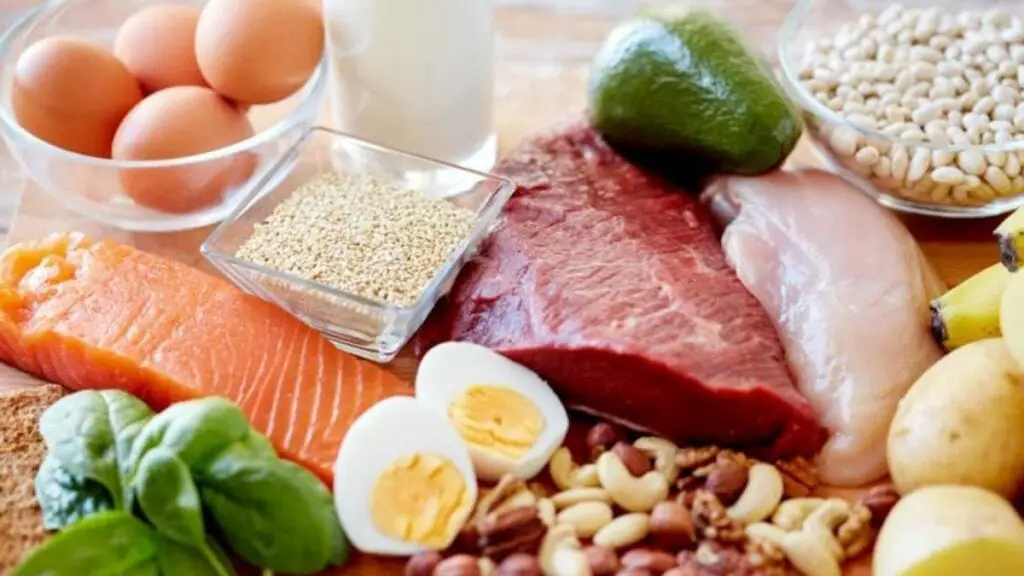
If you have ever had symptoms of anemia, it is very likely that you have used vitamin B2. This vitamin is primarily important for red blood cells because it helps absorb iron. This means that it affects the level of hemoglobin. Foods rich in vitamin B2 are broccoli, brown rice, spinach, almonds, mushrooms…
Vitamin B3
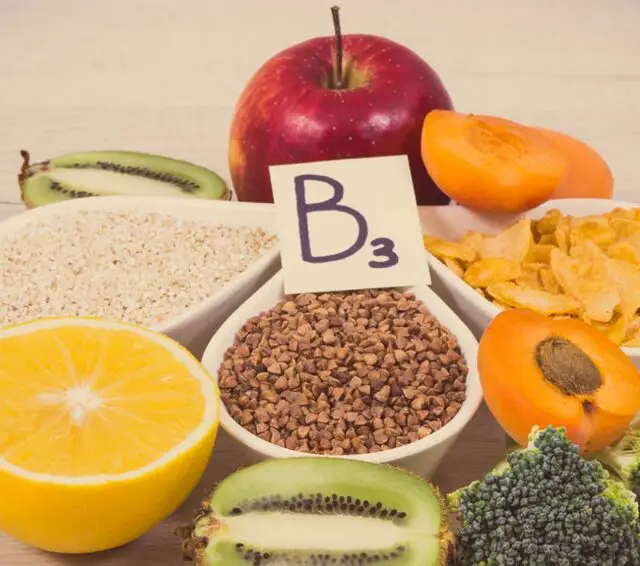
The baby’s immunity is quite underdeveloped and weak in the first weeks after birth. This means that the body is exposed to infections, viruses and diseases. To prevent all this, it is very important to get enough of vitamin B3.
Also, this vitamin affects the nervous system, mental health, but also has a very positive effect in preventing inflammation. You can find it in chicken, sesame seeds, eggs, milk, peanuts…
Vitamin B5
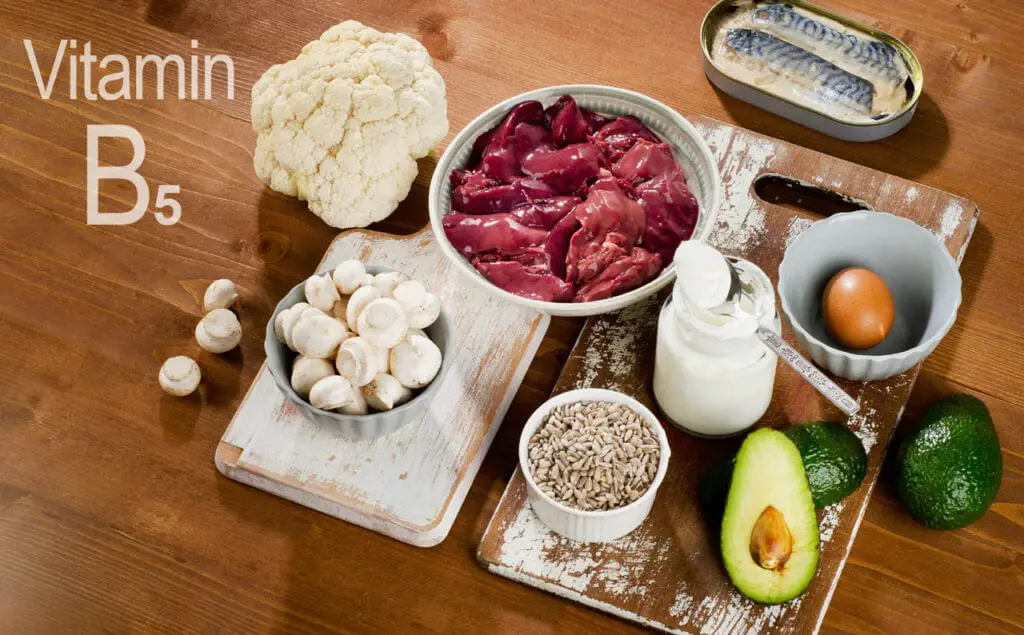
For improved health of the blood system, but also in the healing process, experts recommend the use of vitamin B5. It is mostly found in cereals such as sunflower seeds, vegetables (sweet potato, cauliflower) but also in cheese.
Vitamin B6
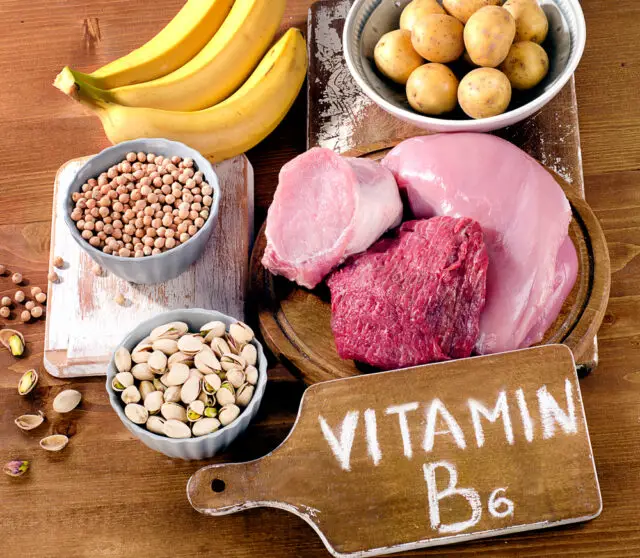
Babies need a stable sleep pattern. Simply put, sleep is very important for proper development and growth. Vitamin B6 affects the production of melatonin which is directly related to the sleep process.
In addition, vitamin B6 is important for the proper development of the brain, spinal cord, and also affects the development of reflexes. It is found in bananas, carrots, fish…
Vitamin B9
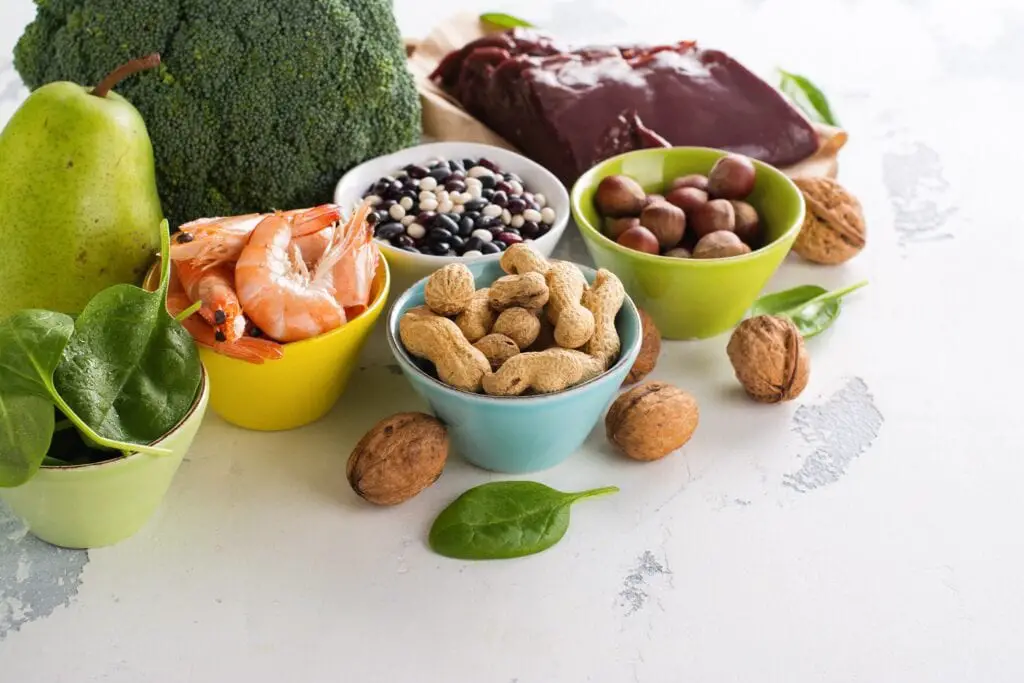
As we mentioned a little earlier, vitamin B9 is much better known as folic acid. As for its role, this is another one involved in the development and production of red blood cells, as well as in the proper development of the brain and in the building of DNA and RNA. Foods like beetroot, milk, rice, green vegetables and milk are rich in vitamin B9.
Vitamin B12
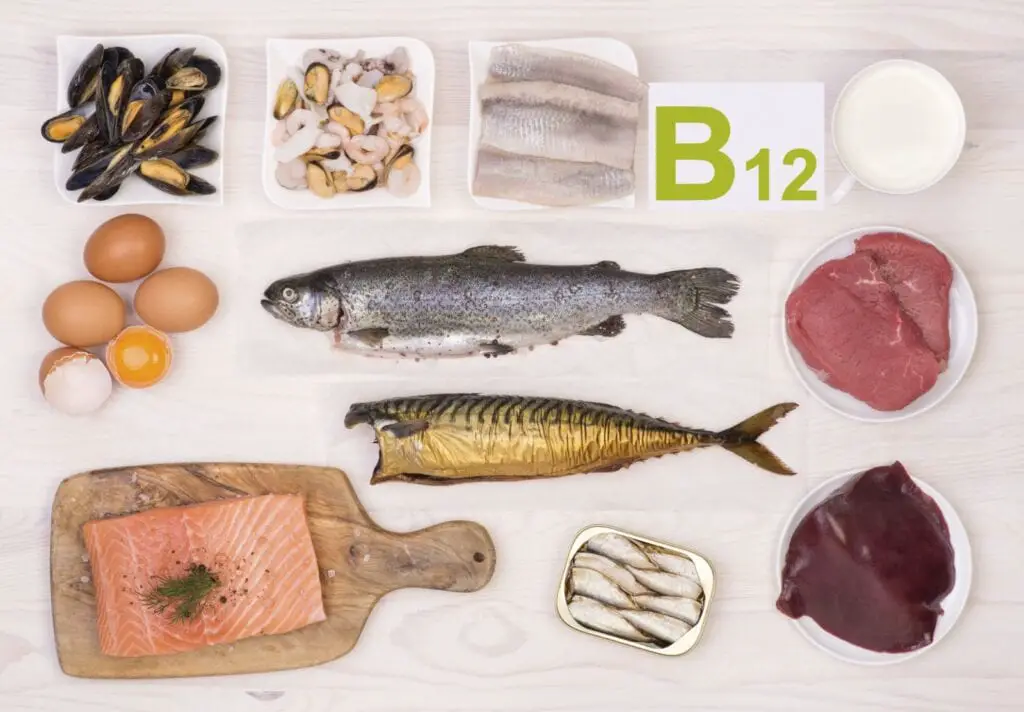
The last of the B family is vitamin B12. Its influence is quite significant because it is involved in genetic as well as DNA and RNA production. In addition, the growth of nerve cells is also affected by vitamin B12. You can find it in foods of animal origin (milk, eggs, fish, meat…).
Vitamin A

Vitamin A affects several systems simultaneously. For example, the nervous system, sense of sight, immune system, tissue system, etc. are just some of them. Fish, sweet potato, mangoes, liver, pumpkin are rich in vitamin A.
Vitamins D and E
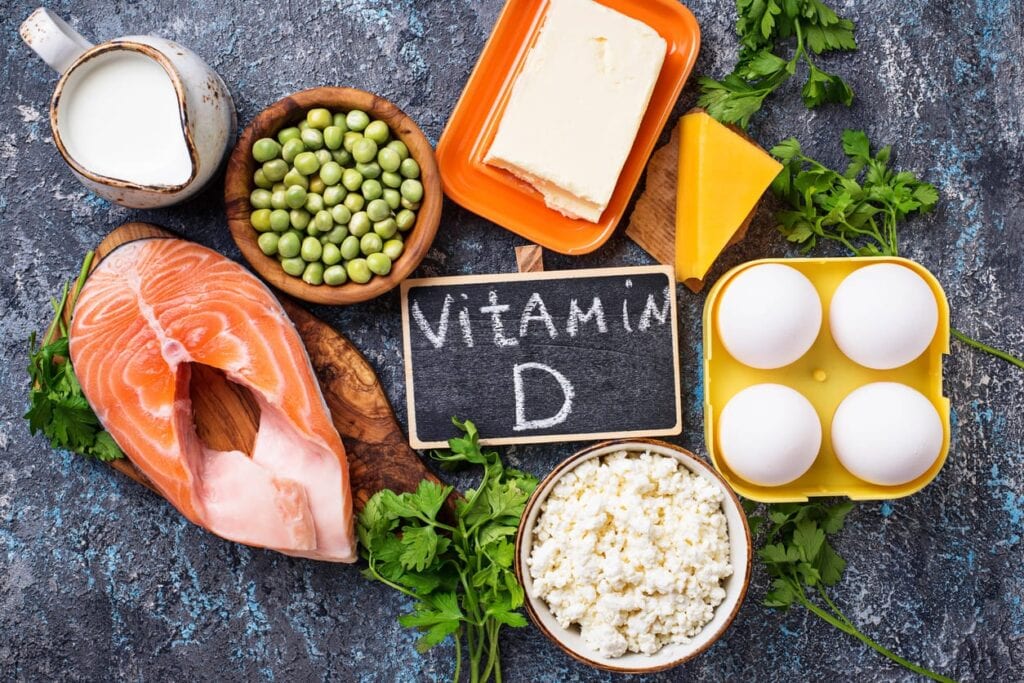
These two vitamins in some way affect the connected parts of the body-bones (D) and muscles (E). They are also important for the immune system. Vitamin D can be found in citrus fruits, eggs, fish, while vitamin E is available in sunflower oil, avocado, peanuts, etc.
Vitamin C
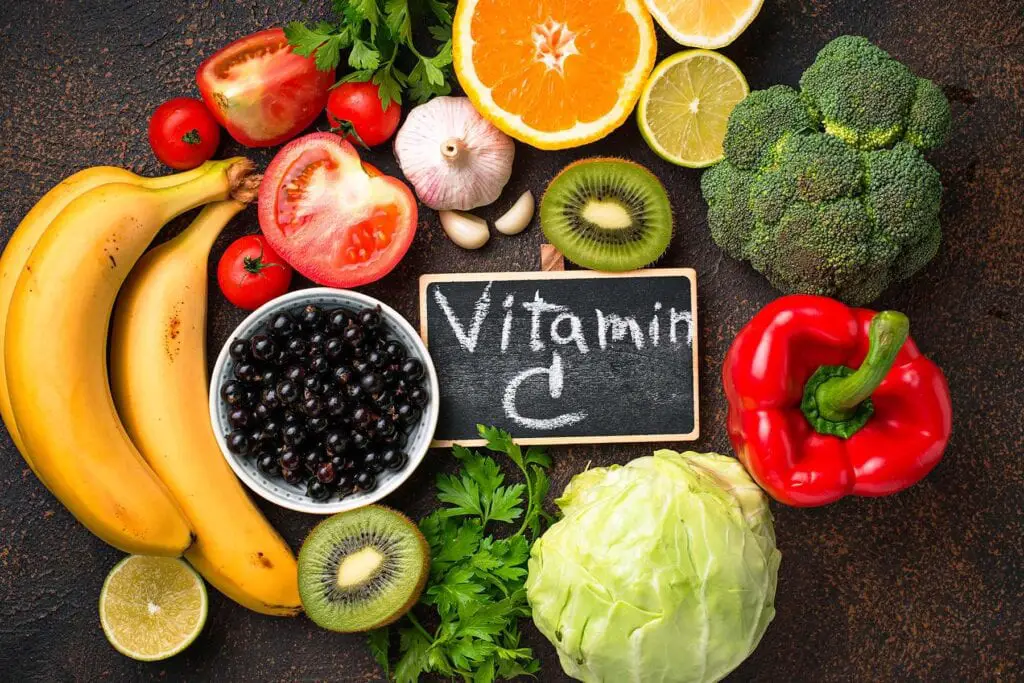
Is there really a need to talk about the importance of vitamin C. As you probably know, the main effect is on the immune system, and therefore on the production of white blood cells. It is found predominantly in citrus fruits.
Vitamin H
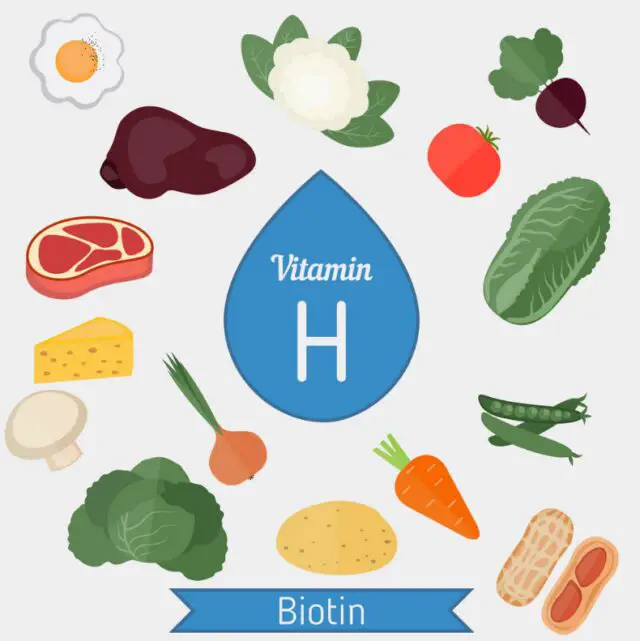
Vitamin H is primarily important for the proper development of nails, hair and skin. In addition, this one plays a significant role in supporting carbohydrate function. You can find it in cabbage, spinach, lettuce, broccoli…
Vitamin K
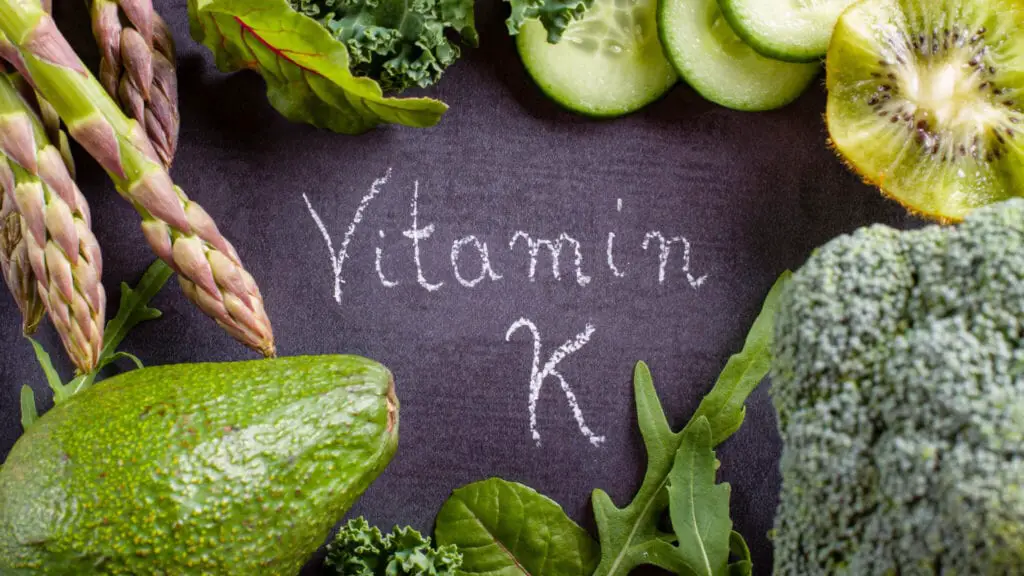
Last but not least is vitamin K. Its role is important in bone development, but also in the blood system. Foods like sweet potato, fish, eggs, cheese are rich in vitamin K.




